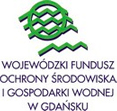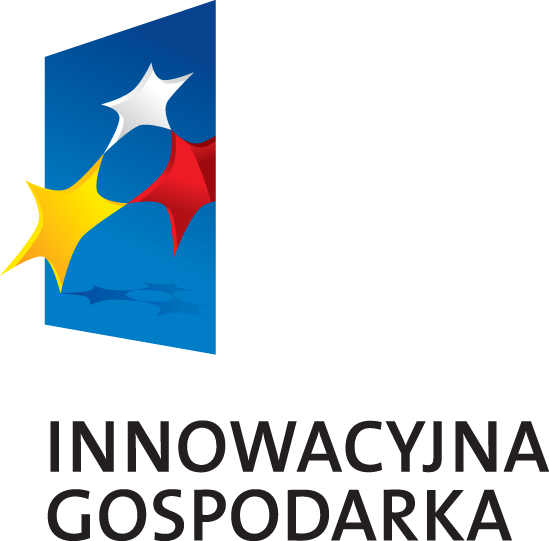Teaching
The Foundation carries out its educational activities in a Demonstrative and Training Centre, opened in 1995. There are various devices and installations set up, all of which were constructed by renowned companies, such as: Viessmann, Danfoss, Gejzer, APV, SeCeS-Pol, Hewalex, Grundfos, Dan-Poltherm. This way it is possible to show in practise the modern methods of using energy.
The Centre possesses a lecture hall for 40 people, which has audiovisual equipment and computer hardware. The Foundation’s staff consists of academics of the Gdańsk University of Technology and engeneering specialists from energy enterprises and ecology environments.
The Foundation also carries out: schoolings, seminars, postgraduate studies, ecology campaigns, etc.
Courses:
1. An ecology education programme for secondary schools
A theoretical and practical course for pupils in high schools and vocational schols. Throughout their stay in the Centre the pupils take part in 6-hour courses, consisting of: A 3-hour introductory lecture and 2 practical activities at schooling stations.
The topic of the lecture:
- recognising and comparing the methods of obtaining energy
- the types of fuels and considering their ecological harm in their consumption
- the ways of saving energy
- influence of municipal waste on the natural environment
- methods of utilizing and waste recycling
- reacting to environmental degradation.
During the practical activities, the pupils will get to know the construction and functioning of energy saving and proecological devices: heat pump, solar collector, photovoltaic battery, etc.
Apart from the courses described in the programme, the pupils will also be introduced to the laboratories of the Gdańsk University of Technology, including the central and computer ones, and will visit the Main Library of the University.
The programme was started in 1996. It was financed by small donations for supporting the activites of non-governmental organizations, made within the annual competitions organized by the Gdańsk municipality. So far, about 1300 pupils from 15 schools and 3 groups of teachers (about 90 people) took part in these courses.
The opinions on this programme received from schools and made by teachers are unambiguously positive. The high standard and usefulness of this form of proecological teaching is emphasized, as a supplementation to school education.
In April 1998 the head of the Educational Department mentioned this programme, as one of the municipality’s three significant tasks and suggested to include it in an agreement for services of the non-governmental organizations.
2. Education programme “GDAŃSK ECOTEAMS”.
It has the largest range of impact. It’s also a socially strong topic. The advatages of the Gdańsk Ecoteams topic:
- it functions at a lower social level – in households,
- it engages the residents to practical actions – it stimulates them to action,
- it helps to change certain habits and behaviours – in the proecological sense.
The ecoteams programme is adressed to various social and age groups. However, it is the most successful in schools.
It consists of conducting a campaign among the citizens of Gdańsk, that informs them on the neccessity of the economical management of renewable sources (energy, water, limiting waste and its selective collection etc.), and stimulating them to action in this field.
A training for ecoteam’s instructors was organized. They’re teachers.
The ecoteams chose their names, picked their leaders (the best pupils), fixed the dates of the track meetings. The meetings took place in the Foundation’s Centre or in schols. All ecoteams received handbooks for training.
3. An introductory educational programme “Energy saving at school”.
A practical programme developed and conducted by pupils under the charge of a teacher and under the essential supervision of the Foundation.
This programme is considered to be a very attractive and a very up-to-date offer for schools. First of all, it brings financial benefits for the school, and second of all most schools are technically neglected and require thermorenovation.
The educational aspect is also significant, meaning the formation of proper attitudes towards the natural environment among the young people based on the example of their own school.
The suggestion of dealing with this subject under the name of “Zużycie energii w szkołach zarządzanych przez Gminę” (the use of energy in schools administered by the municipality) was made to the city’s administration in 1996 by the Foundation.
4. The co-operation between CEN and RCEE in Gdańsk
The co-operation between the Teacher’s Education Centre (Centrum Edukacji Nauczycieli, CEN) in Gdańsk is based on providing the Centre for the in-service trainings of the teachers and the mutual organization of seminars, such as: “Education for ecodevelopment” organised in 1998, or “The role of education in the local Agenda 21”.
The co-operation of the Regional Centre for Ecology Education (Regionalne Centrum Edukacji Ekologicznej, RCEE) only included the Foundation’s participation in a public discussion concerning the National Strategy for Ecology Education organised in April 1996.



 Zajmujemy się także ochroną i promocją technicznego dziedzictwa kulturowego. Zgodnie ze Statutem gromadzimy materiały związane z artefaktami technicznego dziedzictwa kulturowego porównując stan zasobów polskich, norweskich, szwedzkich i ukraińskich...
Zajmujemy się także ochroną i promocją technicznego dziedzictwa kulturowego. Zgodnie ze Statutem gromadzimy materiały związane z artefaktami technicznego dziedzictwa kulturowego porównując stan zasobów polskich, norweskich, szwedzkich i ukraińskich...












